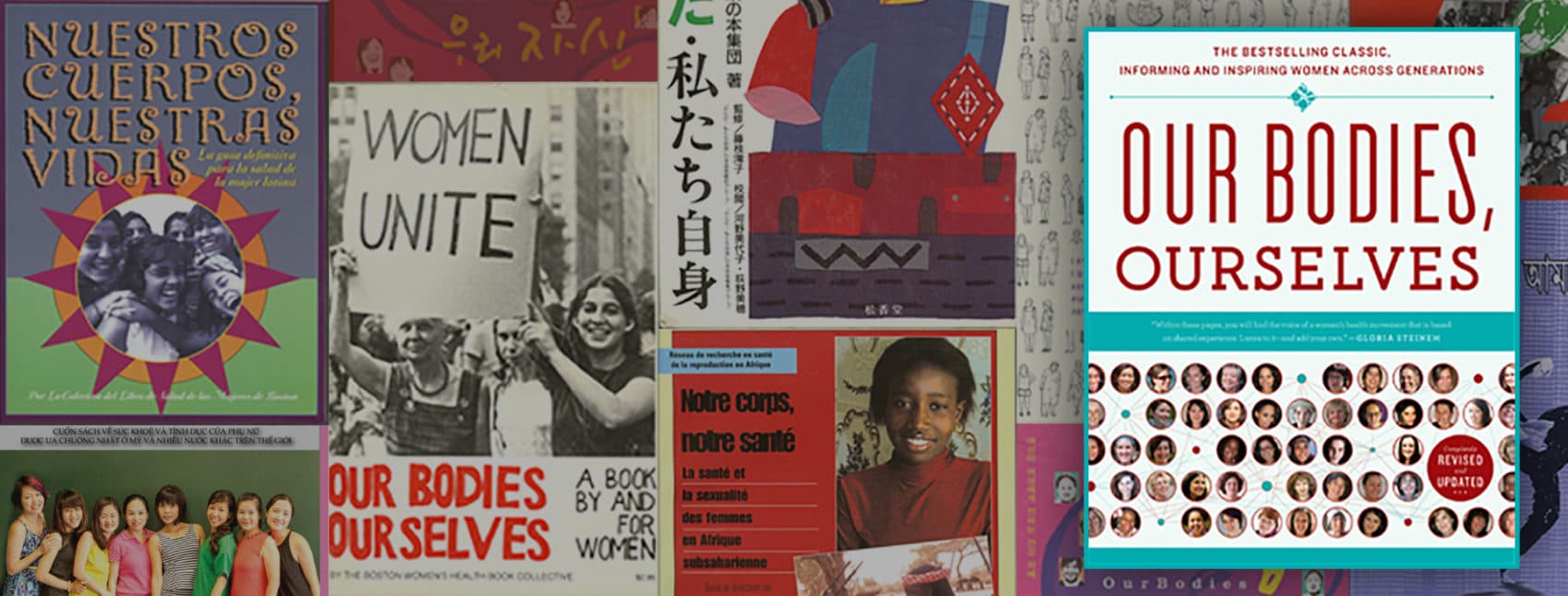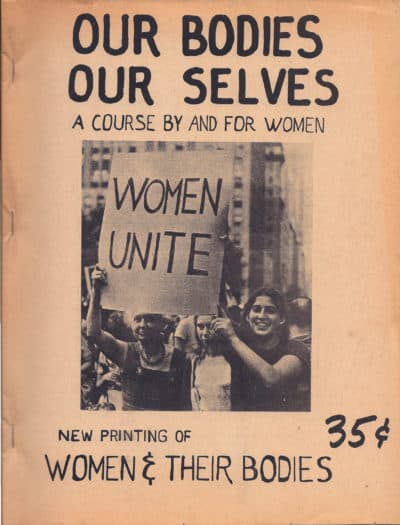Advertisement
Commentary
Remembering The Meeting 50 Years Ago That Led To ‘Our Bodies, Ourselves’

“What’s in this pill?” I asked the doctor. He came over and patted the top of my head and said, “Dear, dear, you don't have to worry about it.”
It was 1966, and this was my last OB/GYN visit in Ann Arbor, Michigan, (with my newborn son) before moving to Boston. My doctor had just told me to take the pill, and I wanted to understand what he was recommending for my body and why. He thought that was silly. And I got angry.
Two years later my anger — our anger — had found more fuel. We were dealing with the Vietnam War; we were dealing with the civil rights movement; Martin Luther King was killed, Robert Kennedy was killed, and the Chicago police were televised beating demonstrators at the Democratic National Convention. The world was in chaos.
A lot of us women who were activists found ourselves in a separate awakening of our own. We were involved in other people’s movements, but even within these supposedly liberal movements, we started to look at how we were treated, as women, and didn’t like it. We didn’t feel equally respected; our leadership wasn’t honored. There’s some incredible footage of such scenes in the 2014 movie “She’s Beautiful When She’s Angry.”
We Wanted To Worry About It
This is how movements get started: There’s a little conversation here, and another in another community, and people get connected somehow — it almost happens spontaneously, as different people find themselves asking, “What’s going on here???” and start thinking new things. The time was right for us to be talking about how we were treated as women.
Out of those conversations, in the spring of 1969, we set up the first women’s conference at Emmanuel College. For my contribution, I put together a workshop titled “Control of Our Bodies.” The room was packed! And people wanted to continue talking after the workshop was over.
After that May 10 meeting, a group of us began to gather regularly, to discuss what topics were important to us. The structure we created had three pillars: evidence-based information (science, biology, anatomy), women’s lived experience — which is what we call today “patient experience” or “patient-centered care”-- and political analysis of the health care system, which considered women to be inept, uneducated simpletons.
Barbara Ehrenreich’s great 1974 book “For Her Own Good” recounts how learned doctors were telling us things like higher education is detrimental to a woman’s long-term uterine health. And these guys wanted us to shut up and do as we’re told? “Dear, dear you don’t have to worry about that”? Well, we wanted to worry about that.
Claiming Our Bodies And Our Health

Our first publication was a newsprint book called “Women and Their Bodies.” Later we realized that the language we use is important — the pronouns: women and their bodies? It’s our bodies — ourselves. The realization that our bodies were not somehow “separate” from us — a separate thing to be negotiated with men — empowered us to say that nobody else had a right to govern our bodies.
So we changed it to “Our Bodies, Ourselves,” and started selling a new edition. People thought I was crazy when I said we were going to sell a million copies. But when we sold a quarter of a million on our own, the publishing company Simon & Schuster picked it up, and now we have millions and millions of copies, 31 different editions and excerpts in dozens of languages.
‘No Victories Are Permanent’
We’ve found that so much of what women need is universal, despite cultural differences around the world. Fifty years ago girls and women in the U.S. often lacked the knowledge to discuss their anatomy — they’d just say, “You know, down there.” And when we did the Arabic edition we found they literally had no vocabulary for female parts – they too would only say “down there.” The need for women to gain self-knowledge and freedom to make informed choices is universal.
We thought when we had victories like Roe v. Wade that we had finally turned the corner. We had, but we didn’t expect the backlash this generation is enduring. So the work goes on: The new project "Our Bodies Ourselves Today" launches this week at Suffolk University’s Center for Women’s Health and Human Rights, and a new generation is taking the reins.
Before he was elected, the current U.S. president’s degrading remarks about grabbing women and women bleeding make clear what one woman says at the end of the “She’s Beautiful” trailer: “The bitter lesson is that no victories are permanent.”
We must fight on, and we will, for what is right — for our bodies, ourselves, our daughters and their daughters.
Miriam Hawley is co-founder of the Boston Women’s Health Collective. Dave deBronkart is co-founder of the Society for Participatory Medicine.
Friday evening, May 10, at Suffolk University some of the original founders of "Our Bodies, Ourselves" will join with Suffolk students and staff to discuss the past and future of the movement, as Suffolk’s Center for Women’s Health and Human Rights takes over the new incarnation of the project, "Our Bodies Ourselves Today." Miriam Hawley will be one of the panelists.